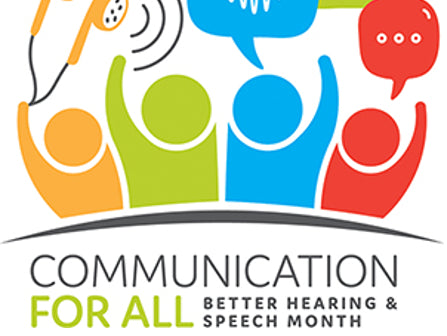
(Regarding content and grammar, my intent is to include all children, and well as parent(s) and caregiver(s). However, in the interest of readability, only the terms “he” and “him” and “parents” will be used.)
Happy May-Day!
Have you ever heard an SLP exclaim: “Please! I love preparing for and going to meetings! Sign me up for more meetings!” Nope, me neither.
With that said, today we’re focusing on meetings, but not in the typical way. I’m not listing all the content categories of what we must include legally, etc.; we know those things.
Instead, I’m sharing experience-based ideas on how to utilize meetings to our advantage. Meetings are not just about sharing information, making decisions, and signing forms. They’re about relationships and connections:
Here’s an essential goal to keep in mind: WIN THE PARENTS OVER TO THE CONCEPT OF TEAMWORK.
You’ll want and need an allies and supporters at home for the child, and for you (no matter if it’s for the rest of the school year, or for next year). Parents frequently influence the child’s attitude toward speech-language services as well as the importance and compliance of speech-language homework. (Read that last sentence again!)
The benefits can reach way beyond the meeting itself. Meetings = “seed planting.”
First, the Parent’s Initial Perspective
Put yourself in the place of the parents, especially at their first Eligibility meeting. Some parents, if they are new to you and the process, may feel:
- A sense of distrust and skepticism.
- Disbelief about the accuracy of the test results, conclusions and recommendations.
- Concern for their child’s welfare (academically and socially).
- A sense of inferiority and inadequacy, and sometimes,
- Guilt (which may result in denial, or at the other end of the spectrum, tears).
In this internet and social media age, you never know what the in-coming parents have read or who they have talked with. They may enter with a negative “us against them” attitude.
But even the most positive of parents may come to the meeting with the purpose of determining your qualifications, credibility, and if you are someone they want their child to work with.
Believe me, until we get past these, there is no TEAMWORK; there’s just YOU-WORK!
Next, a relevant question for you: Should the child be included at the eligibility/IEP meetings?
Kids at Meetings—Can be a Good Thing
No doubt you have your own philosophy about including or excluding the child at meetings; here’s my personal take.
I am a proponent of including the child at articulation meetings (Eligibility, IEPs and RTIs).
I also support including language-kids (depending on age, capability level, severity of results, etc.) at progress IEPs, but not necessarily at the language eligibility meeting. Given the in-depth and involved nature of our language test results and the psych test results, etc. sometimes it’s just best for the child not to be there.
Alternatively, for a language child, bring him in at the end of the meeting once test results and decisions have been made (or almost made). Let him witness the caring individuals seated around the table that are there just for him. Share any changes in his instruction, state and explain the goals, etc. Include him in signing the document. Help him to know that he is a very important part of the TEAM.
It helps for parents see you in action with their child—friendly, caring, patient, and someone who speaks to the child as an important team member and uses understandable language. Parents want to know that, yes, you are qualified, but, also, does their child like you? They weigh and watch your competency.
When a child is included in the meeting you have an opportunity to:
- Interact with the child in front of the parent, and
- Inform the child:
- Why the meeting is taking place (in his honor!),
- About his test results (within reason; include what is helpful and prudent),
- About the importance of his education and the focus on learning,
- About specific changes in his instruction, and
- What will be expected of him (e.g., he will be expected to attend all instruction sessions, do speech/language homework, and do his best to improve, etc.).
Bottom-line? Make your decision to include or exclude the child on a case-by-case basis. A good rule of thumb is to include him when it’s beneficial for the child.
P.S. If you noticed (and thank you for that!), I didn’t send out a Therapy Matters last week (April 24). Life (ok, illness) got in the way. I’m up and moving now and life is great! I hope this finds you the same! Have a wonderful week!
Leave a comment (all fields required)
Comments will be approved before showing up.

![#71 Telepractice Tips 'n Info (Part 4) [Is my child working or just playing games?]](http://speechdynamics.com/cdn/shop/articles/Game_Pieces_and_Hand_7_x_3_2048x.jpg?v=1605804364)